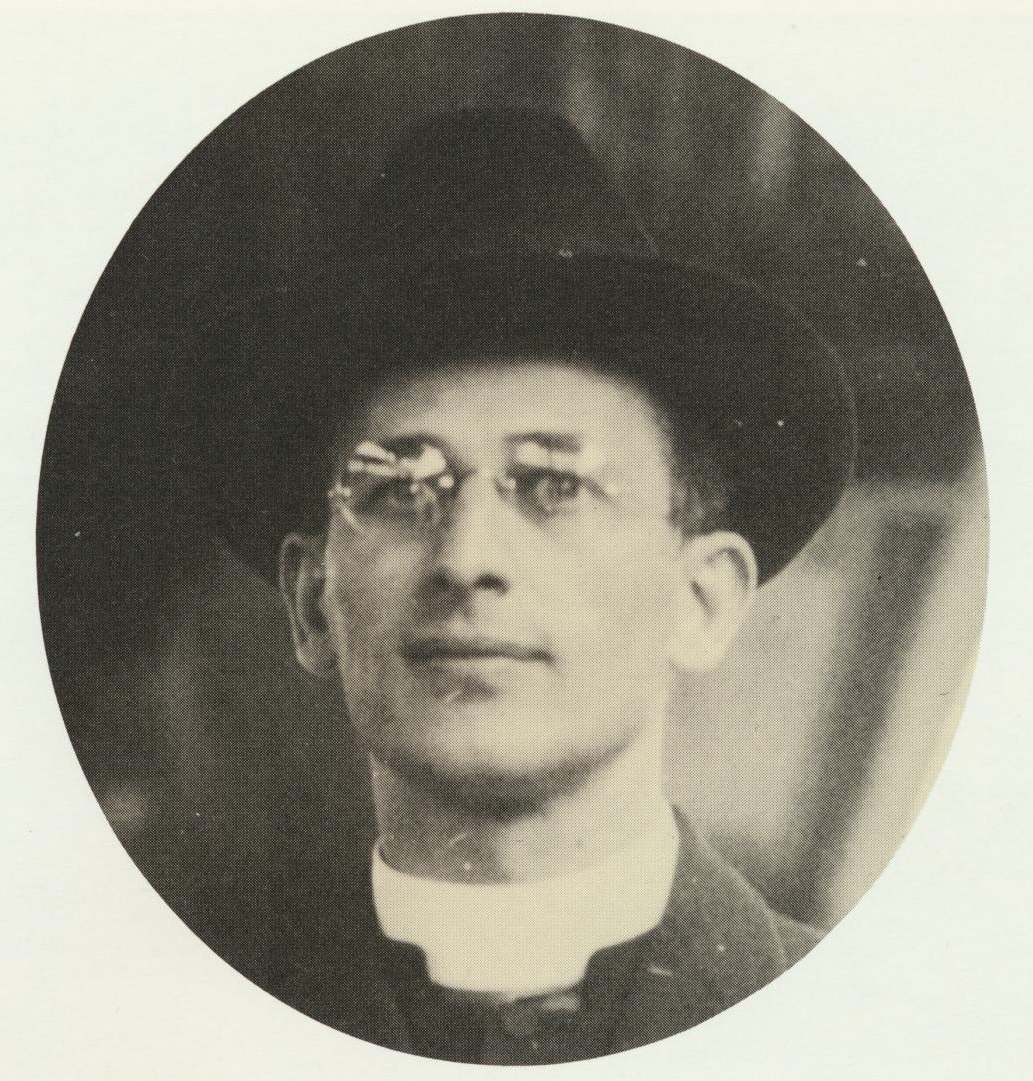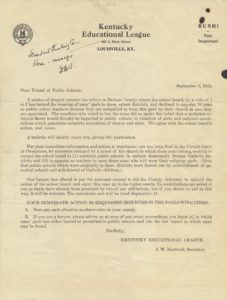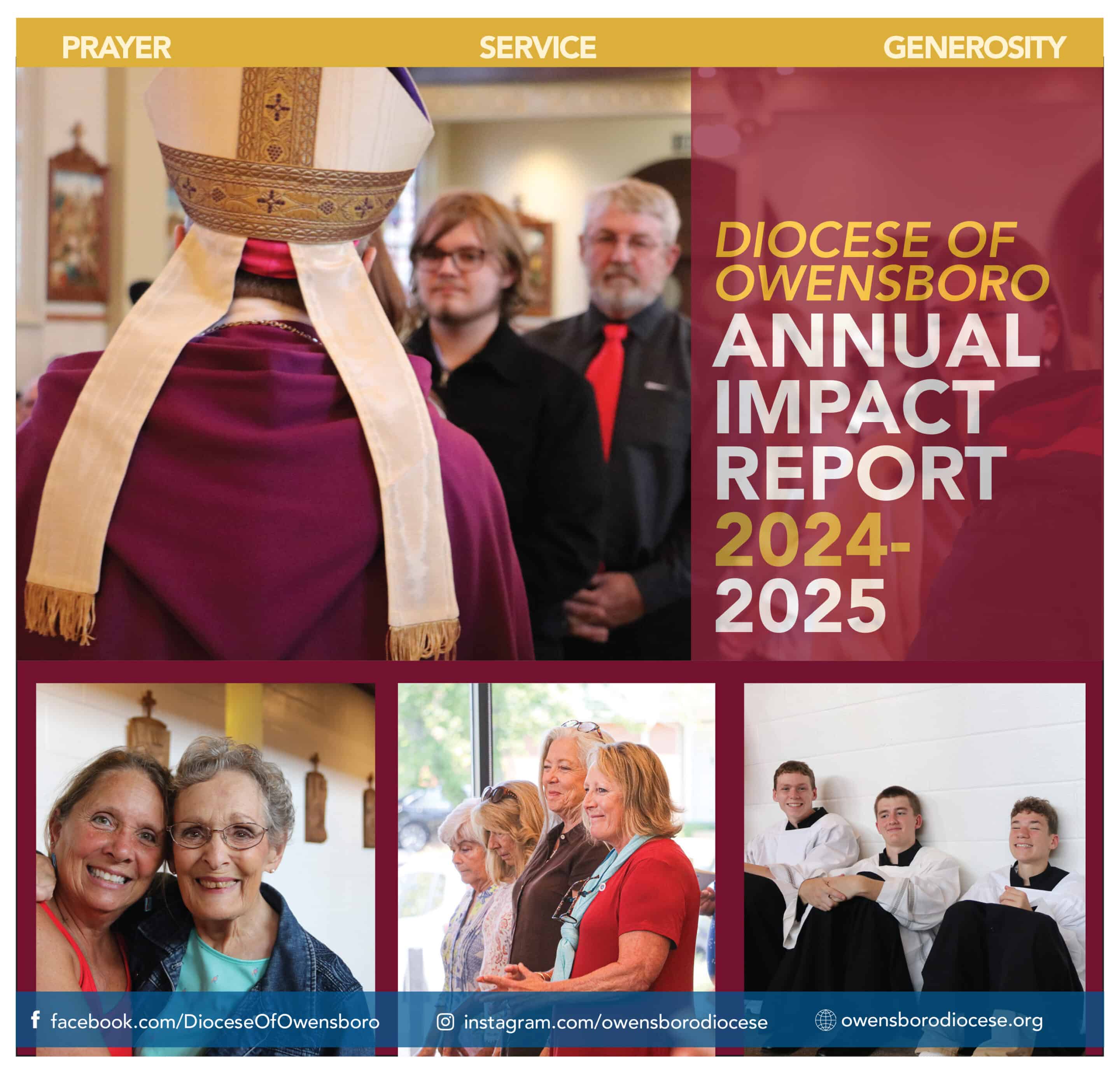
Bishop John A. Floersh of Louisville, in 1923. COURTESY OF ARCHIVES
Bishop John A. Floersh and the ‘Nun Problem’
BY EDWARD WILSON, ARCHIVES
In early September 1925, the newly-appointed Bishop of Louisville, Bishop John A. Floersh, received some distressing news. The relatively young, 38-year-old bishop received word that parishioners in one of the counties in his expansive diocese had become entrenched in a bitter legal battle. The dispute centered on the presence of religious attire in public schools. The county that the letter was referring to was Daviess County. Being that this was prior to the creation of the Diocese of Owensboro, this was his concern.
The conflict began with the closure of public schools in the historically Catholic settlements of Knottsville, St. Lawrence and St. Joseph. The public schools closed after Catholic schools opened and hundreds of children began to attend the Catholic institutions instead.
After time had passed, families in the area began to complain that they were paying school taxes when the public schools had long since closed. They believed that a perfect solution would be for the county to lease the Catholic school buildings from the parishes and pay the Ursuline Sisters public school wages to continue instruction. Though this seemed agreeable to the families, the school board, by a slim margin, ruled that they would not allow the wearing of nuns’ garments in a public school.
This frustrated several of the families and caused them to take the battle to a higher court. In turn, those opposed to a Catholic presence in public institutions initiated a campaign. A broadside was mailed out, and the dispute began to become visible to those outside of the small communities.

A letter dated Sept. 6, 1925, seeking sympathizers to oppose the proposed introduction of nuns into public school education in Daviess County. COURTESY OF ARCHIVES
Though the plan had been approved by the state superintendent of public instruction, and the state attorney general, a letter dated Sept. 6, 1925 had begun circulating throughout the state and arousing opponents to the Catholic plan. Under the letterhead of the Kentucky Educational League, the letter informed readers that the Daviess County “school board, by a vote of 3 to 2” had “barred the wearing of nuns’ garb in three school districts.” The letter relayed that this led to the denial of hiring 10 nuns from leading instruction in local public schools. It specified that the decision had been accepted due to the principles of “separation of church and state.” The Kentucky Educational League affirmed that they agreed with the school board’s decision. They concluded stating that the League was assisting in defending the decision in a higher court. It also assured that no donations were needed, as two organizations had volunteered to finance the case. According to sources, the dispute began to take on a tone of fierce religious animosity.
Though many anticipated a vicious legal battle, what they received was mercy. After a meeting between Bishop Floersh and renowned Catholic lawyer LaVega Clements, it was decided that for the sake of religious civility, the case would be dropped and the schools continued as Catholic schools, unaffiliated with the public educational system. Though he was young, and had only succeeded as bishop a year prior, Bishop Floersh proved himself a skillful and prudent leader, valuing peace over conflict.
Edward Wilson is the director of the Diocese of Owensboro’s Archives and the Archives of the Ursuline Sisters of Mount Saint Joseph. Comments and questions may be sent to [email protected].
Originally printed in the March 2021 issue of The Western Kentucky Catholic.

